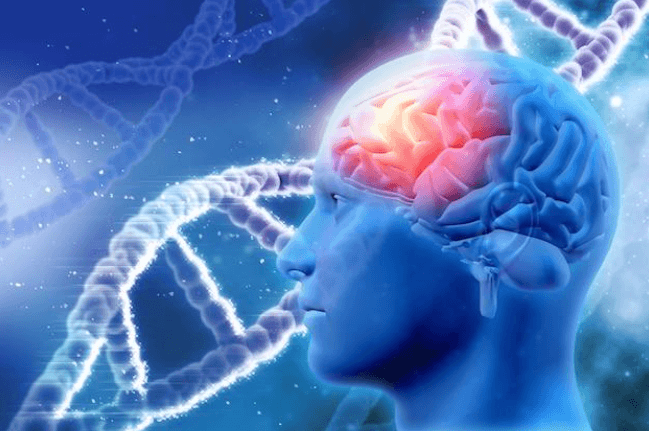Probiotics for Brain Health

Want to improve brain health? Focus on the gut! Research has proven the innate connection between what goes on in the gut and the impact on how we think, feel & behave! Interestingly, the neurotransmitters that calm the brain of anxiety & fear and regulate sleep, induce feelings of happiness, and induce feelings of pleasure, satisfaction & motivation are produced in the gut. Research suggests gut microbiome has a huge role to play in the nervous system disorders that affect mental health causing conditions like anxiety and depression. This has triggered massive interest of specialists in a special class of probiotics called ‘psychobiotics’, a class of gut microbes that communicate with the brain via vagus nerve to improve brain function, lower the stress response, boost moods, improve cognitive function, treat depression and anxiety and improve the conduction of electrical impulses to the brain.
How do Gut & Brain Communicate?
Gut is famously known as the ‘second brain’ and maintains a bi-directional communication with the brain through the enteric nervous system & vagus nerve. Gut is also the home to trillions of varied colonies of microbes that exist in a symbiotic ‘give & take’ relationship with the human body, taking and returning favours. This bi-directional communication between the gut & brain happens in three different ways and gut microbes have a role to play in each of these channels:
- Neurotransmitters & Neurohormones: Gut microbes produce various biologically active compounds called neurotransmitters such as dopamine (induces sense of pleasure & motivation), serotonin (induces feelings of happiness), GABA (helps control feelings of fear & stress). These neurotransmitters are secreted in the gut and through the medium of gut lining, signal the brain function which affects behaviour.
- Brain & Adrenal Glands: Gut microbes interact with the enteric nervous system (the second brain) which further communicates directly with the central nervous system and brain, also responsible for managing the stress response. In case of constant high-stress state, the production and timing of stress hormones including cortisol becomes disrupted which may cause mood disorders and cognitive problems. Research shows gut microbes affect body’s stress response, exerting positive impact on the brain and the adrenal glands.
- Lowering Brain Inflammation: Brain inflammation can begin in the gut and is known to cause depressive symptoms, mood & cognitive disorders. The anti-inflammatory action of probiotics brings down chronic inflammation in both body and brain.
What are Psychobiotics?
Psychobiotics are a class of probiotic strains that thrive on prebiotics and have been studied for their positive effects on mental well-being, behaviour, emotions, stress and nervous system disorders including anxiety & depression. It is shown in research the potential of psychobiotics in communicating with the brain through gut-brain axis and altering thoughts, feelings and behaviour. Psychobiotics have been shown to stimulate the production of neurotransmitters in the gut and regulate neurotransmission in the enteric nervous system.
Phychobiotics improve brain function by:
- Regulating neurotransmitters that control mood and behaviour, ease tension & raise alertness.
- Maintaining gut barrier integrity (also known as leaky gut) and controlling the entry of toxins into the bloodstream which also protects against chronic inflammation.
- Lowering inflammation and protect against mental conditions.
- Regulating gut-brain communication by influencing the activity of the vagus nerve.
- Producing metabolites such as short-chain fatty acids (SCFAs) that play huge role in gut health, brain function, and mental well-being.
- Regulating hormones and improving the communication between brain & body.
Promising Probiotic (Psychobiotic) Strains for Brain Health
- Lactobacillus rhamnosus – Affects GABA production and proven to lower stress levels, anxiety, reduce obsessive-compulsive disorder. Found in some yogurt and dairy products
- Bifidobacterium longum – Reduces cortisol, helps mitigate psychological distress and effective for treating depression.
- Lactobacillus plantarum – Known to influence mood and behaviour by regulating dopamine and serotonin production, reducing stress hormones & lowering brain inflammation. Found in pickles, brined vegetables, sauerkraut & kimchi.
- Lactobacillus helveticus – Helps reduce cortisol levels and reduce neuroinflammation and anxiety. Found in cheeses Cheddar, Parmesan, Romano, provolone, and mozzarella
- Lactobacillus reuteri – Reduces anxiety by altering GABA receptors. Found in breast milk, and some meat and dairy products.
- Lactobacillus casei – Proven to be effective for neurological concerns arising due to high cortisol caused due to fatigue, digestive problems, and anxiety. Found in naturally fermented green olives & fermented vegetables.
- Bifidobacterium breve – Proven to enhance mood and cognitive performance.















